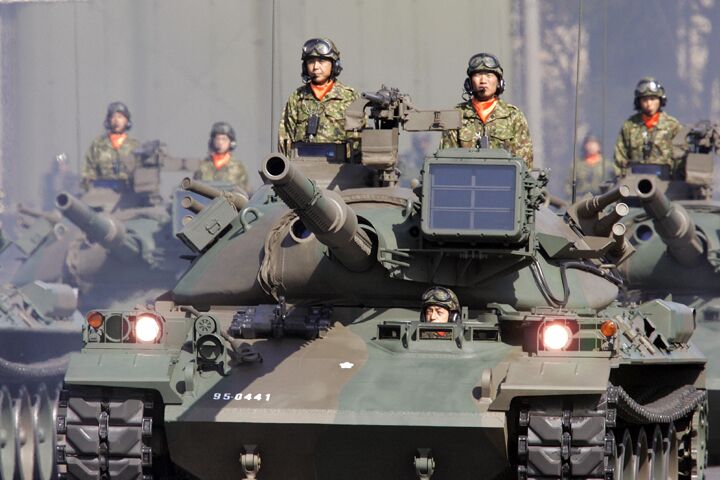
A Military Love Triangle: America, China and Japan
After years of giving each other the cold shoulder, the militaries of Japan and China are entering into a new area of cooperation.
On February 27, Japanese Self-Defense Forces (sdf) Chief of Staff Takashi Saito met with China’s Defense Minister Cao Gangchuan in Beijing. At this meeting the two military leaders agreed to enhance military cooperation between Japan and China. Such cooperation, Takashi said, is significant to both regional and global stability.
The Chinese defense minister took this meeting as an opportunity to reiterate to the Japanese military leader how important it was to China to have Japanese support in opposing Taiwanese independence. Takashi said Japan would continue to oppose any move toward independence on Taiwan’s part.
While in Beijing, Takashi also visited Chen Binde, the chief of general staff for China’s People’s Liberation Army. They agreed to implement a views and ideas exchange program between the two militaries as they each build up their defense forces.
Military cooperation between Japan and China is the start of a 180-degree realignment in Japanese military politics.
Japan’s post-World War ii constitution theoretically bars Japan from maintaining “land, sea and air forces, as well as other war potential.” This, however, has not prevented Japan from building a sizeable defense force and deploying personnel in non-combat peacekeeping roles internationally. Even now, Tokyo is considering sending peacekeeping troops to southern Sudan as a way to boost the international presence of its military.
America has actually encouraged Japan to disregard its constitution and to build up its own defense forces. Washington’s logic was that it needed to empower Japan as an ally against China.
But things have not worked out as America initially hoped. Japan is now formulating its own military alliance with China.
America and China are competing for the affections of Japan’s military. When two men are rivals for a woman’s affections, she may lead them both on for a while, but eventually she must choose between them. The same is true among nations. Japan’s current prime minister, Yasuo Fukuda, is both pro-Chinese and pro-American. He is leading both nations on. This is not a sustainable state of affairs.
One reason American troops are in Japan is so they are close to Taiwan, strategically placed in case they have to intervene against China. But the Japanese defense chief just assured China that Japan opposes Taiwanese independence. This issue alone shows why, eventually, Japan will have to choose between her suitors.
The recent outrage sparked in Japan over the suspected rape of a 14-year-old Japanese girl by a U.S. marine on the Japanese island of Okinawa is not helping America’s case. On February 22, Japan’s defense minister warned America that any further crimes by U.S. troops would hurt their relationship. “I don’t think an alliance is possible unless the U.S. shares the view that if incidents like this continue to happen, it could shake the foundation of the Japan-U.S. alliance,” he said.
The Japanese are seriously considering choosing China as their chosen suitor.
The Plain Truth, with Herbert W. Armstrong as its editor in chief, wrote 40 years ago, “Despite popular belief, Japan is not permanently committed to a pro-Western position. America has foolishly followed the policy of assuming that … Germany and Japan can be converted to the virtues of democracy in less than a generation. … Both Japanese and Germans are willing, for the present, to put up with their so-called democratic form of government—until some serious internal crisis is precipitated. … Japan tolerates her present form of government as long as it is economically expedient. If the time were ever to come—and it will come—that the Japanese could not feed off of American aid, we would witness a remarkable change in attitude toward the United States. Friendship would quickly evaporate” (April 1968; emphasis mine).
Today, Japan is in a position where it is no longer reliant on the American military to protect it, and friendship is evaporating.
For more information on Japan’s changing allegiances, read “America’s Loss—Asia’s Gain.”
